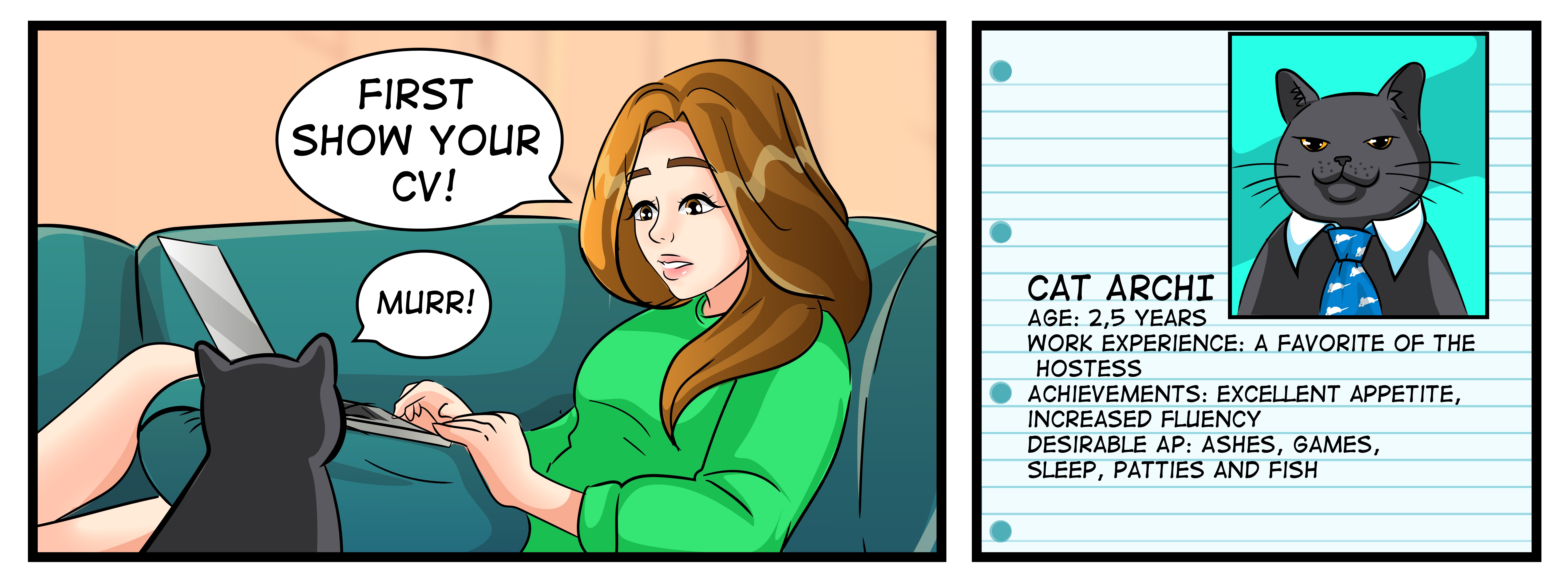Get it done in 6 seconds: profiler skills for resume screening

There is an opinion that an experienced recruiter needs 6-7 seconds for preliminary assessment of a resume. He runs his eyes over it, makes a quick impression, in thought says to the candidate “yes” or “no”, continues his work… But when there are fewer really qualified professionals, it is not about speed, but about the quality of reading a resume. That is, in those 6-7 seconds the recruiter should act as a real profiler – not to pass by a candidate who really deserves attention. How? Let’s analyze.
Recruiters of big and not-so-big companies receive dozens of resumes every day. In order not to lose the best ones, it is worth to use screening – sifting or filtering resumes, when the recruiter selects those whose skills and experience fit the vacancy best. Due to this, more competent candidates come to the interview, among whom in the end is “the one needed”.
There are certain subtle aspects that help make resume screening better.
Screening starts with… the vacancy
An important step in screening is determining the key search criteria. This is a job profile, application, other document that details the critical and desirable requirements for the candidate, essential functions, salary, etc. All resumes are recommended to correlate to this. Therefore, to minimize the number of “weak” candidates for a particular position, you should take care to describe the position correctly and honestly before posting it on the job portals.
When writting a vacancy, it is worth specifying the requirements. For example, specify the desired skills, requirements for experience, the level of remuneration at least in the format “starting from”, the form of payment (fixed and variable part). The recruiter should read the vacancy through the eyes of the candidate, who should clearly understand what the requirements are. In this way, there is a chance to get more adequate feedback.
Screening algorithms

Experienced recruiters advise selecting candidates by resume in several stages. There is no need to consider each resume at once, it is more convenient to allocate time for consideration “in bulk”, depending on the number of responses.
In order not to waste time on calls, meetings and further processing of the candidate, it is worth reading the resume, paying attention to the main blocks: education, experience, achievements, the desired level of remuneration, etc. It also makes sense to select for further consideration those resumes, in which the specified amount more or less corresponds to the financial capabilities of the company.
Work experience
Studying the experience of the candidate, it is important to analyze areas of activity of employers, career development, number and duration of work in companies. Such screening helps to match the candidate’s profile with the vacancy. For this purpose, it will be helpful to ask the questions:
- Is the candidate’s experience in a particular field important?
- Is the candidate’s current career development important?
- Is the candidate’s previous work experience important to the position?
It is worth being careful with the resumes that list multiple jobs and companies over a short period of time. “Jumping” from job to job may indicate that there may be “nuances” with the candidate, he or she is unable to interact with the team, at the earliest possible opportunity avoids problems by running over to another place, etc.
Duties, competences, skills
It is worth reviewing the functional responsibilities carefully, as they may not match the functions of the specialist the company needs – different companies may have different job titles. Therefore, determine:
- Are any functional responsibilities important that we cannot consider the candidate without?
- Is it worth clarifying this point through a phone call?
It is helpful to mark those who list not only functional responsibilities, but also achievements on their resume. This means that the person is focused on his or her activities. Yes, it may be a premature conclusion, but there will always be an opportunity to check it during the interview. The same applies to competences and skills – indicative are professional terminology, specificity in their description, without exaggeration and narcissism.
Education
It is interesting not only to look at the specialized education and the higher educational institution the candidate once graduated from, but also to see if he is still improving his level. He definitely commands respect if he is working on his qualifications, taking trainings or courses in his field. These people are motivated. And yet, remember our position and put all the data through the prism of the role:
- Is it important to our position now?
- Will it help the specialist to perform his/her functional duties more efficiently?
Personal data
Age, residency, marital status – this information is not crucial, but it can be important when, for example, the position has a clear geographical reference and does not provide a format of remote working.
Approach to the resume formulation
First of all, pay attention to the literacy. If there are minor errors on the resume, you should not put it aside right away. But if the company is looking for a lawyer, copywriter, PR director, editor – it is crucially important.
A lot depends on the structure of the resume as a whole. If the text has clear paragraphs, titles, bullet points – it gives an understanding of a person’s vision of his experience as well as the ability to highlight key points in his future work. Everything is interesting – focuses, style of presenting information, presence of professional terminology, as well as how readable the resume is.
If there is a positive impression of the applicant, but he does not meet the requirements of the position, it is rational to keep him “in reserve” or consider him for other/future positions.
Look for the gaps
It is important to learn to read and see what kind of person is hiding behind the document, to incorporate critical thinking and analyze all available facts. The screening stage is as important as the interview stage. Due to quick and inattentive screening you can miss important information about necessary knowledge and skills, or conversely, get the wrong impression of the candidate. So keep the focus on quality, and “fast skills” will come naturally.
Additional ways to select resumes
To optimize your resume, you can ask the candidate to include a cover letter before responding to the vacancy, do a small test assignment (if relevant), share a portfolio or a link to the performed work (again, depending on the specifics), ask for a link to social media pages. If the resume caught the interest, you can even call in advance and ask clarifying questions. This significantly increases the effectiveness of the search, and random or irrelevant candidates are filtered out.

Automated screening
It is worth noting that resume screening will be more productive if you use smart filters in automated recruiting systems. For example, CleverStaff has features that significantly speed up the work with the candidate’s card. One of them is the advanced search. You can customize it to the requirements of the desired candidate – from position and field to language skills and rare competencies, you can create templates and work efficiently. It is also very convenient to do bulk operations with resumes – import from the mail, upload as an archive, transfer from Excel, etc. Later, when the database is formed, it is convenient to use “Autoselection” – so you can search for the candidates much faster, lead them through the stages of the funnel, saving all the history of communication.
Thus, successfully combining the abovementioned tools and screening algorithms, the recruiter or sourcer can significantly simplify and speed up the whole selection process, find the right people and save time and effort.
Try 7 days for free
